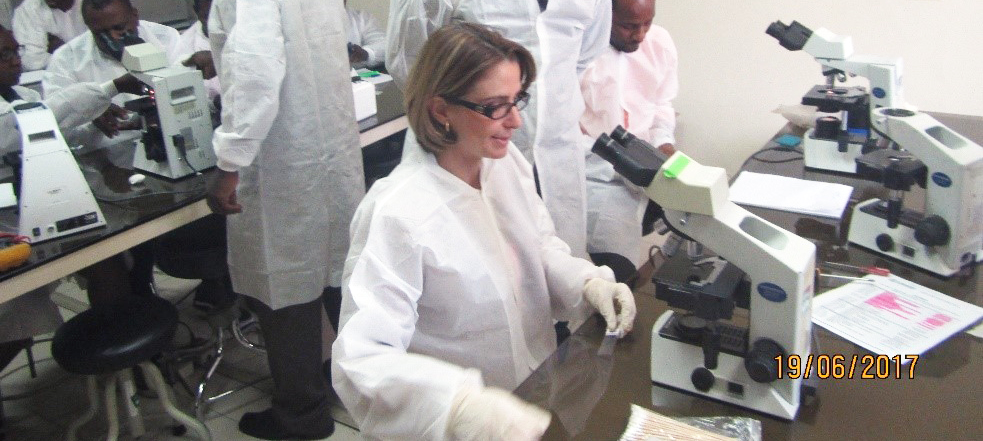
Maintenance of specialized equipment in resource-poor environments adds a heavy burden to already stretched health systems. The World Health Organization (WHO) estimates that 70% of medical equipment in sub-Saharan Africa is out of service, mainly due to the lack of trained biomedical technicians and unavailability of spare parts. WHO emphasized that equipment maintenance should be an integral part of a complete medical equipment donation.
Haiti’s ordeal of equipment maintenance exacerbated after laboratory and medical equipment donations began flowing into the country following the January 2010 earthquake. Lack of funding to support recurrent costs, such as salaries for biomedical technicians or training on the use and maintenance of the donated equipment, led to a situation where life-saving medical donations were not utilized to the maximum extent, if not completely wasted.
In 2018, the USAID Global Health Supply Chain –Technical Assistance Francophone Task Order took a multi-pronged approach to help Haiti address the problem of capacity building in equipment maintenance. First, the project launched a 5-month-long, first-of-its-kind inventory assessment of the USAID-funded laboratory and medical equipment in 154 sites in all 10 administrative departments of the country. The assessment concluded that 75 percent of all equipment was functional, 17 percent was due for repair, 4 percent was not installed, and 4 percent was due for disposal. Following this assessment, the project developed training modules in equipment maintenance and trained 18 biomedical specialists of the Ministry of Health in June 2018. Finally, the repair of 526 laboratory and 81 medical equipment items identified “for repair” during the assessment will be done by these technicians, with support from the project, after the training sessions are completed. The project is also providing the spare parts required for these repairs.
Successful completion of the assessment study and the launch of the equipment maintenance training program for biomedical technicians demonstrate important progress in addressing the flaws of specialized equipment donation in Haiti. Analysis of this assessment study will help Haiti to better evaluate all legacy and donated equipment in the country; and to better plan for the maintenance and needed staff training in all future discussions with donors related to equipment donations. By increasing local capacity to provide timely maintenance of specialized health care equipment, the project has helped Haiti to eliminate unnecessary costs related to maintenance services normally rendered by foreign providers.


